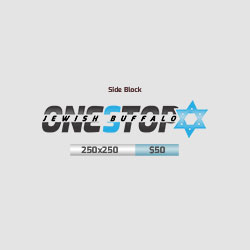The seventh day of Passover—Shevi’I shel Pesach—marks the day the Jewish nation miraculously crossed the Yam Suf, the Reed Sea. The Torah reading for this day is the Shirah, the Song that Moses and the Israelites sang upon their miraculous deliverance from the onslaught of the pursuing Egyptian army.
Among the varied expressions of praise to G-d, indeed, the very first one to appear, is the description of the drowning of the Egyptians:
“The horse and his rider He has thrown into the sea.”
Rashi comments that the miracle here was that the rider was attached to his horse as they were cast into the sea.
At first glance, this miracle appears to be superfluous. What difference would it make if the rider would have been thrown off his horse as he was thrown into the sea? Why did G-d have to bind them together?
One approach to this matter can be to look at the Egyptians not just as a nation of antiquity that enslaved and persecuted the Jewish people. In addition, Egypt as the symbol of those forces that try to undermine the integrity of the Jewish people. Their drowning in the Reed Sea, was G-d’s way of frustrating the threat to the Jewish people. In order to maximize the defeat of these forces of evil, G-d bound the horse with its rider.
Panim Yafot, cites the famous Talmudic parable of the king who hired both a blind person and a lame person to guard his orchard. This way, he thought, he would be guaranteed that the guards themselves would not steal his luscious fruit. What did they do? The lame person, who saw the fruit and was tempted by it, asked the blind person to carry him on his shoulders. In concert, they managed to reach the orchard and steal its fruit. The Talmud concludes that when the king discovered the theft, he made the blind man carry the lame man, and administered lashes to both of them as they were in that tandem position.
This metaphor is used by our Sages to describe the symbiotic relationship between the soul and the body. Without the soul the body cannot function and without the body the soul cannot get what it wants.
The horse and rider also represents the combined efforts of the body and the soul in all of our negative and positive pursuits. One cannot separate the two. When G-d wants to remove the threat of the pursuing Egyptian army, He made sure to eliminate both the body and soul of Egypt. Conversely, when G-d wants to fortify the world with positive energy, He directs His energy to the body and soul combined.
In addition to the application of the horse and the rider to the combined efforts of the soul and the body, one can also discern between the primary forces and secondary forces in all the evil or good that is performed. Lest we minimize the threat from the secondary causes to evil, the Torah informs us that G-d had to punish both the rider and the horse, the primary and secondary threats respectively. To deal with only the direct causes of evil — “the rider” —and to neglect the accessories to evil — “the horse” — could eventually lead to future problems. Likewise in the realm of positive efforts, one should never minimize the secondary influences in the performance of a Mitzvah.
This thought has already been alluded to by our Sages in Ethics of the Fathers: “Reflect on three things so that You will not come to the handles of sin.” A person must strive not only to avoid the actual transgression, but even to avoid the things that can lead to sin. An example of this is to live in a spiritually healthy environment. One must eliminate not only the “rider,” (the actual threat to our well being), but also the “horse” (the accessories and facilitators of the forces that can cause us harm).
The Shirah in its use of the future tense, “Then Moses shall sing,” the Midrash states, alludes to the future song of the Jewish nation in the Messianic Age. This implies that the song the Jews sang in the past is not complete. Only in the future Messianic Age, will we have eliminated not only the actual causes of evil, but even the means to the end will be purified and sanctified. Now that we are in exile, we cannot always get a handle on the secondary and tertiary influences. In addition, in the Messianic Age, G-d will remove all impurity from the land and even the “handles of sin” will be removed. Furthermore, both the soul and body will enjoy a close relationship, wherein both are harnessed for service to G-d.


